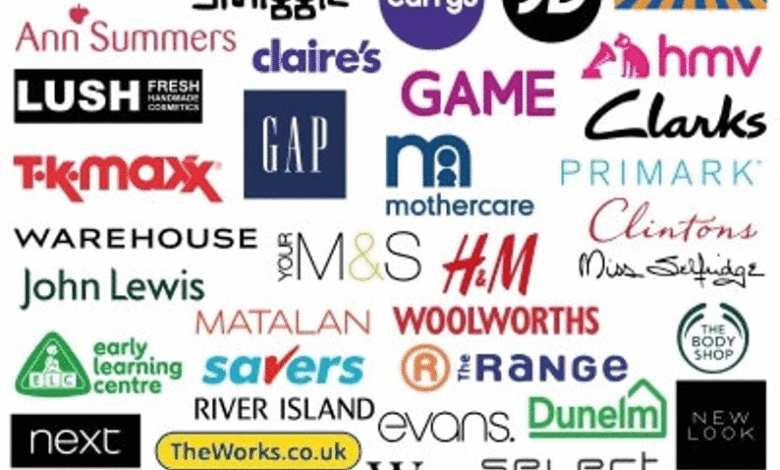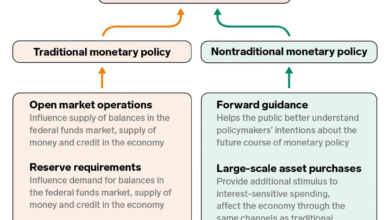Store Brands: How They’re Changing Consumer Shopping Trends

Store brands are emerging as formidable contenders in today’s retail landscape, capturing the attention of increasingly savvy shoppers. As inflation continues to impact grocery prices, many consumers are turning towards private label products as affordable alternatives to their favorite name-brand items. This shift reflects changing consumer shopping trends, where more people are willing to swap brand loyalty for quality and savings. Statistics show that sales of store-brand products have surged, indicating a growing acceptance of these products as viable contenders on the supermarket shelves. The evolving perception of store brands signals a significant transformation in the way consumers view value and quality in their purchasing decisions.
In recent years, retail chains have recognized the potential of generics or in-house brands, strategically promoting them as equal or superior to well-known national brands. This growing trend in private label shopping indicates a shift in how consumers engage with products, increasingly embracing alternatives that offer similar quality at a reduced price. As shoppers become more discerning, the lines between familiar brand goods and retailer-exclusive offerings continue to blur, leading to a decline in brand loyalty. With a focus on value, consumers are not only looking at the cost on the shelf but also the overall quality and appeal of the items they choose. In this competitive environment, the rise of these in-house products reflects a significant change in consumer behavior and shopping preferences.
The Rise of Store Brands: Affordable Alternatives for Shoppers
In today’s economy, the rise of store brands has become an essential trend among conscious consumers. Many shoppers, seeking affordable alternatives to traditional name-brand products, have turned to private label items available at their local grocery stores. Recent industry reports confirm that U.S. sales of store-brand products reached a staggering $271 billion last year. This significant increase illustrates that consumers are prioritizing value without compromising on quality, inadvertently opting for alternatives they may not even realize are not from name-brand manufacturers.
The appeal of store brands goes beyond just lower prices. Savvy marketing strategies and improved packaging designs have played a pivotal role in changing perceptions about private label products. Consumers are now more inclined to try these alternatives, often due to their resemblance to well-known brands. In fact, many are unaware of their choices, as a substantial portion of shoppers in a recent survey mistakenly identified store brands as name brands. This indicates a shift in consumer behavior driven not only by economic needs but also by changing shopping trends.
Consumer Shopping Trends: The Shift Towards Private Labels
Over the years, consumer shopping trends have shifted significantly, especially in the wake of economic pressures such as inflation and rising grocery prices. As families seek to stretch their budgets, the trend towards purchasing store brands has gained momentum. According to recent surveys, as many as 47% of shoppers reported that they tried a store brand because of its similarity to a popular name-brand product, showcasing the growing comfort with private-label goods as a viable option.
As grocery prices continue to climb, brand loyalty among consumers is witnessing a decline. Many shoppers have become adept at seeking out affordable alternatives, often choosing private labels that perform equally well at a fraction of the cost. The result is a new shopping landscape that emphasizes value over brand recognition. This shift is evident in consumer attitudes, where more than 84% of respondents stated they trust the quality of store brands as much as national brands. These changing dynamics highlight a significant evolution in how consumers prioritize their shopping experiences.
Brand Loyalty: The Impact of Private Label Products
The concept of brand loyalty is undergoing a transformation as consumers increasingly turn to private label products. In an era defined by economic uncertainties, shoppers are less inclined to exhibit unwavering loyalty to traditional brands. Instead, they are now exploring cost-effective options that still meet their quality standards. This shift is not merely a matter of price; it reflects a broader understanding that store brands can provide the same level of satisfaction without the associated costs of name-brand products.
The competitive landscape has forced major brands to reconsider their marketing approaches. As store brands gain traction in the market, some iconic names have found themselves caught in a battle to maintain shelf space and consumer interest. The growing perception of private labels as trustworthy rivals is indicative of a shifting marketplace where affordability and quality reign supreme over established brand loyalty. This significant transition necessitates that brand manufacturers innovate continually to retain and appeal to their customer bases.
Grocery Prices: The Catalyst for Store Brand Popularity
As grocery prices have surged over recent years, consumers are feeling the financial pinch, prompting many to explore store brands as a budget-friendly option. The inflation rates and subsequent price increases on staple items have led shoppers to scrutinize their purchases more closely. As observed in surveys, consumers are increasingly aware of the price disparities between private label goods and name brands, leading to greater adoption of the former as their purchasing power adjusts.
Retailers have capitalized on this trend by enhancing the quality and presentation of their store brands, displacing the outdated notion that private-label products are inferior. By improving packaging and branding strategies, retailers have effectively communicated that their products can be both affordable and high-quality. As the cost of groceries continues to rise, this emphasis on value is likely to sustain the momentum for store brands, positioning them favorably in the eyes of frugal consumers.
The Quality Factor: Trusting Private Label Products
As consumers become more familiar with store brands, their trust in the quality of private label products has significantly increased. Independent studies show that a large majority of shoppers now deem these brands to be just as trustworthy as their national counterparts. This shift in perception has empowered consumers to experiment with various store-brand alternatives, resulting in heightened preferences for these products, even among previously loyal brand enthusiasts.
Retailers have responded by ensuring that their private labels meet high standards, often sourcing ingredients or materials from the same manufacturers that produce name-brand goods. Such strategies not only elevate the quality of store-brand products but also help dispel doubts that shoppers might have regarding product performance. As more consumers recognize the value and reliability of private label options, the distinction between brand loyalty and quality-based purchasing becomes increasingly blurred.
Packaging Strategies: How Design Influences Consumer Choices
In the competitive landscape of grocery retail, packaging plays a crucial role in influencing consumer choices, particularly when it comes to private label products. Retailers are investing in attractive, high-quality packaging that rivals well-known brands, thereby enhancing consumer confidence in their store brands. This strategic design not only helps improve shelf appeal but also serves to reposition private label products as viable alternatives to established names.
The evolution of packaging strategies has shown that consumers are becoming increasingly visual shoppers, often making judgments based on the appearance of products. Recent trends indicate that appealing designs and clear labeling can sway shopper opinions, providing store brands with a competitive edge. Innovative packaging not only attracts initial purchases but also fosters repeat buying behavior, reinforcing the perception that store brands can meet or exceed the expectations set by traditional brands.
Understanding Consumer Preferences in Grocery Shopping
Analyzing consumer preferences provides insight into the factors that prompt shoppers to choose store brands over name brands. A report from First Insight revealed that more than half of shoppers are now looking for products that align with their desire for quality at a price point they can afford. Growing awareness of price comparisons has sharpened consumer focus, leading them to appreciate the advantages of private label products in their grocery shopping.
This shift in preferences emphasizes a fundamental change in shopper priorities. As people become more mindful of their spending, they are actively seeking out options that offer better value for their money. A remarkable 84% of consumers believe store brands offer quality comparable to their national counterparts, and this perception reinforces their choice to lean toward private labels. Understanding these consumer preferences is crucial for retailers aiming to enhance their product offerings and marketing strategies.
The Future of Private Labels in Retail Markets
As market dynamics continue to evolve, the future of private labels appears robust, particularly in the wake of shifting consumer behaviors and preferences. Now more than ever, shoppers are inclined to explore alternatives that offer both affordability and perceived quality. Retailers are likely to respond by expanding their private label assortments, thus further entrenching their positions in various product categories, including groceries, household items, and personal care.
Moreover, as competition heats up between brand manufacturers and retailers, consumers stand to benefit from enhanced options at competitive prices. The evolution of private label products will keep pushing traditional brands to innovate, ensuring that shoppers have access to high-quality choices that do not stretch their budgets. This future outlook indicates a growing acceptance of private labels as a staple in grocery shopping, cultivating a more diverse market landscape.
Frequently Asked Questions
What are store brands and how do they compare to name-brand products?
Store brands, also known as private label products, are items sold under a retailer’s own label, often at lower prices than name-brand products. They have gained popularity due to their affordability, particularly during times of inflation when consumers are seeking cost-effective alternatives without compromising on quality.
Why are consumers increasingly choosing private label products over name brands?
Many shoppers are turning to private label products due to rising grocery prices and the enhanced quality of store brands. Research shows that nearly 84% of consumers trust the quality of private labels as much as national brands, driven by attractive packaging and effective marketing strategies.
What trends are influencing consumer shopping habits toward store brands?
Consumer shopping trends indicate a growing preference for affordable alternatives like store brands, especially as grocery prices continue to rise. The shift is also reinforced by the increased quality and appealing packaging of private label products, which have become indistinguishable from name-brand items for many shoppers.
Is brand loyalty declining in favor of private label products?
Yes, brand loyalty is diminishing as many consumers are now willing to try store brands that resemble name brands. About 47% of shoppers have chosen store brands specifically for their similarity to familiar products, indicating a significant shift in consumer trust and purchasing behavior.
How has the packaging of store brands evolved over the years?
The packaging of store brands has evolved significantly from basic, cost-saving designs to more sophisticated packaging that competes with name brands. Retailers are investing in higher-quality printing and more appealing designs to attract consumers, further blurring the lines between private label products and established brands.
Are private label products as good as name-brand items?
Many consumers believe that private label products offer comparable quality to name-brand items. A survey indicated that 84% of consumers trust store brands just as much as national brands, highlighting the improving perceptions and quality of private label goods in the marketplace.
What role does pricing play in the popularity of private label products?
Pricing significantly contributes to the popularity of private label products. As grocery prices have surged, many shoppers are recognizing that store brands often cost 25% to 40% less than their name-brand counterparts, prompting a shift toward seeking better value for their purchases.
How do grocery chains market their store brands to compete with national brands?
Grocery chains utilize effective marketing strategies that include attractive packaging and strategic placement on shelves to enhance the perceived quality of their store brands. This approach aims to position private label products as equal or superior to national brands while maintaining a more affordable price point.
| Key Points |
|---|
| Many shoppers are buying store brands without realizing it, driven by the search for affordability. |
| U.S. sales of store-brand products reached a record $271 billion, showing a 4% increase. |
| 71% of consumers think they can identify private-label products, but 72% fail when tested. |
| Retailers are using better packaging designs to make store brands appear of equal or better quality. |
| Private-label products often come from the same manufacturers as name brands, which adds to the confusion. |
| Price is a key driving factor for shoppers choosing private labels over name brands. |
| A study found 47% of shoppers tried a store brand because it resembled a name brand. |
| Grocers rely on name brands to set price points for store brands, ensuring some level of visibility for both. |
Summary
Store brands have become a significant choice for consumers looking for cost-effective options without sacrificing quality. With the continuous rise in prices of name-brand products, shoppers are increasingly turning to private-label alternatives, often unknowingly. The growing trust in store brands is reshaping consumer behavior, highlighting the need for traditional brands to adapt to this new market reality. As grocery prices fluctuate, the ability of store brands to maintain quality while undercutting established brands positions them as a formidable force in retail.




